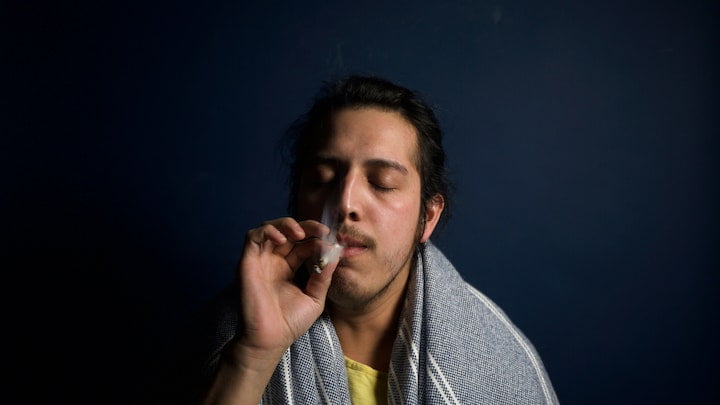Drug & Alcohol Rehab in Somerset
Are you struggling to deal with an addiction? Are you considering treatment at a drug and alcohol rehab in Somerset? OK Rehab can help.
We are a recovery advocate service, and we specialise in finding treatment for anyone who actively wants to stop using drugs or alcohol.
We can help you self-refer yourself into addiction treatment, and can also offer support for concerned friends, family, co-workers or employers who wish to help someone they know struggling with an addiction.
Searching for treatment can be challenging, time-consuming and extremely stressful. When attempting to do this whilst also withdrawing from alcohol and drugs, coping with daily life and avoiding temptations, any length of time spent looking is a dangerous time when treatment begins to look less and less inviting.
This can, unfortunately, lead to many individuals giving up on the search for suitable addiction treatment, overwhelmed by the options, the forms, the judging, and the endless questions.
It doesn’t have to be this way. With OK Rehab you can rest assured that you will receive the crucial treatment you need for your addiction, and will have the chance to fully recover and lead a normal life afterwards.
Get in contact with us today if you are considering a drug and alcohol rehab in Somerset. We can also offer advice and intervention services to those that are concerned about a loved one.
There are around 5,202 dependent drinkers in Somerset.[1] Sadly, in 2021, there were “15 deaths related to drug poisoning… in Somerset West and Taunton.”[2]
This is more than just numbers, there are people and families behind these facts and getting help is often difficult because of the stigma attached to addiction.
However, entering a drug and alcohol rehab in Somerset can quite literally change your future and bring you a healthy life which positively impacts you and your loved ones.
Get alcohol and drug rehab in Somerset for a variety of addictions including binge drinking, alcohol addiction, benzodiazepine addiction, Buprenorphine addiction, cannabis use disorder, crack cocaine addiction, ketamine addiction, opioid use disorder, heroin addiction, cocaine dependence or cocaine addiction, any physical dependence or codependency, substance use disorder, and behavioural addictions such as gambling addiction and eating disorders.
To begin your recovery journey today, call our 24-Hour Helpline: 0800 326 5559
At home, there are interventions you can use to support a loved one

There are various things you can do at home to support a loved one who is living with addiction as well as the rest of the family. Using an intervention gives you something to use when you’re stuck and also encourages your person towards a stay at an alcohol rehab in Somerset.
Some families go for the CRAFT approach. This is an intervention that offers a structure to follow. There is learning to be done around addiction and communication styles.
The point of CRAFT is to create positive relationships and draw attention to your loved one’s healthy behaviours as a point of motivation to drive them towards rehabilitation.
Another type intervention families go for is a traditional approach. A professional will come to the family home and meet with you and your loved one.
Together you’ll discuss the issues linked to the addiction and the professional will explain options in terms of rehab support. There’s usually an emphasis on supporting your family member into rehab quickly.
How much will a stay at rehab cost?

Private rehab care comes with a cost. This means you benefit from quality accommodation, treatment, and individualised support.
While there are luxury rehab clinics that can cost around £10,000 a week, there are also options at the affordable end of the scale around £1,000 a week.
To find the level of luxury suited to you, it’s worth researching to see the range of rehabs in the county to know what’s on offer. OK Rehab can support you in making a rehab comparison if that would help.
Health insurance can sometimes be used to pay for rehab

It’s worth having a look at your health insurance documents if you have a policy because it will clarify whether it covers the cost of private treatment for addiction to alcohol or drugs. What you need to keep in mind, however, is as with the majority of insurance policies, if you claim it’s likely to increase your yearly premiums in the future.
Perhaps you have health insurance provided through your employers. If this is the case, you might be able to use the policy to cover a rehab stay.
The issue with this route is that often employers include a clause in paperwork meaning you have to declare when you’re using the policy to claim if it’s around treatment for addiction. It’s understandable that in some roles, you might find this difficult as it could have implications around your job.
To begin your recovery journey today, call our 24-Hour Helpline: 0800 326 5559
How you can access NHS funding for private treatment

There are some people who are eligible for NHS funding to pay for treatment at a private clinic for their addiction. Those who are will be from a low-income household and will be living with a moderate to severe addiction.
The council, who you apply to for the funding, will want to see that you’re firmly determined to become sober.
They’ll want to see evidence of this and will expect you to be in contact with local drug and alcohol services in Somerset. This will mean not just being linked to the service but actively engaged with treatments including weekly groups and attending any one-to-ones you’re offered.
What’s the best amount of time to stay at rehab?

It has to be said that a drug or alcohol addiction doesn’t “fix” overnight. It takes work, commitment, learning, self-development, and the willingness to put the effort into remaining steadfast to your goals even at the most challenging of moments.
At an alcohol rehab in Somerset, some people will stay for around seven days. This would be the case for people who enter for a detox from alcohol or heroin. However, while a person may be weaned off a substance in a week or so, to really become sober, more is needed.
People with addictions need psychological treatments as well and the time to practise what they learn to manage cravings and triggers. This takes longer.
The vast majority of people who go to rehab will stay for around twenty-eight days. Some might even stay a little longer – especially more likely if there are complex needs (i.e. mental health symptoms such as depression, post traumatic stress disorder (PTSD), bipolar disorder, borderline personality disorder, obsessive compulsive disorder (OCD) or schizophrenia or anxiety).
Two types of rehabilitation facilities; NHS and private

When you have treatment for addiction, you can either go to the NHS or to a private clinic. Some people quite often start at the NHS but then go to a private clinic in order to seek a more intensive and expert approach.
The NHS provides drug and alcohol services throughout towns and cities in Somerset. There, you get assigned a substance misuse worker who will offer a few one-to-one sessions.
The main input is group sessions which you can attend weekly. These services are open to anyone who is in active addiction whether they’re trying to quit or finding it difficult to do so.
There are many private clinics in Somerset. You can have a chat with OK Rehab to find out which would be most suited to your needs.
Private treatment includes twenty-four-hour round-the-clock care, specialist staff providing top-of-the-range treatments, in-house detoxes, psychotherapies, and alternative therapies.
Statutory-Funded Addiction Help in Somerset:
Here are a few organisations near you that could help.
1. With You
Address: 35 Boulevard, Weston-super-Mare BS23 1PE
Telephone: 01934427940
Website: https://www.wearewithyou.org.uk/
2. REACH Drug & Alcohol Services
Address: Woodcock Court, Queen St, Gillingham SP8 4DZ
Telephone: 08000434656
Website: http://www.edp.org.uk/reach/
3. Addiction Recovery Agency
Address: 38 Boulevard, Weston-super-Mare BS23 1NF
Telephone: 01934415376
Additionally, you can reach out to a number of helplines, including Mind UK, YoungMinds, Rethink Mental Illness, Samaritans, Papyrus, and SMART Recovery.
You could also find an Alcoholics Anonymous, Narcotics Anonymous or Cocaine Anonymous near you. The NHS are also there to help you.
Organisations that can also offer you help and support for free include NHS Foundation Trust, Turning Point, We Are With You, National Association for Children of Alcoholics, Change Grow Live and Alateen.
Rehabs and organisations are advised by the American Society of Addiction Medicine and the National Institute for Health and Care Excellence so you are in fantastic hands with person-centered care.
You may get access to sober living houses as part of your aftercare after you leave rehab to help you maintain your sobriety and help with relapse prevention.
To begin your recovery journey today, call our 24-Hour Helpline: 0800 326 5559
How inpatient and outpatient clinics provide treatment

The way treatment facilities work means that you’ll be treated as an inpatient or an outpatient. As an inpatient, you stay on-site at the clinic overnight for a particular amount of time in order to receive treatments.
Private clinics offer inpatient treatment as it aligns with the intensive approach to healing.
You can, however, stay as an outpatient at an NHS hospital but this only really tends to happen for people using substances when they hit a crisis point and require medical care.
Rehab clinics that offer outpatient treatments are the sort you find in towns which are funded by the NHS. You go to the clinic when you have a meeting arranged with a member of staff or want to go to a group session but remain residing at home.
To begin your recovery journey today, call our 24-Hour Helpline: 0800 326 5559
Alcohol Detox and Rehab in Somerset

The best way to start your recovery from alcohol use is by withdrawing safely from the substance through a clinically overseen detox. These are provided by a range of rehab clinics in Somerset.
During the detox, which lasts around ten days, you’ll have a Librium prescription which weans you off alcohol safely.
The point of this is to manage the withdrawal symptoms, which include:
- Hallucinations
- Sickness and diarrhoea.
- Sweating and shaking.
- Fluctuations in appetite.
After the detox, you’ll be supported by the therapy teams. This is where you start to do the work which unpicks your addiction.
Types of therapy you can access at a private rehab include Acceptance and Commitment Therapy, acupuncture, art therapy, cognitive behavioural therapy, dialectical behaviour therapy, drama therapy, Eye Movement Desensitization and Reprocessing, group psychotherapy, motivational therapy, Rational Emotive Behavior Therapy, brief intervention, contingency management, coping mechanisms work therapy, equine therapy, family therapy, group therapy, individual therapy, mindfulness, motivational interviewing, music therapy, and talking therapies.
With guidance, you’ll understand the background factors that led to you becoming hooked on alcohol and learn how to adapt in order to focus on a healthy lifestyle.
Stages of alcohol detox
Alcohol dependence can be confirmed fast and efficiently using the Alcohol Use Disorders Identification Test, DSM-5 or CAGE questionnaire.
Dependent drinkers will have built up a strong tolerance to alcohol, and experience unpleasant withdrawal symptoms (alcohol withdrawal symptoms) or alcohol withdrawal syndrome when they stop drinking, so these symptoms need to be managed carefully.
To ensure that the risk of seizures is curtailed our medical team prescribe patients with Chlordiazepoxide, brand name Librium, as they undergo detox as this has been proven to offer more protection against the risk of seizures.
A medically-assisted detox (alcohol detox) is needed in order to try to prevent the effects of alcohol, including encephalopathy (Wernicke encephalopathy) and delirium tremens.
Rehab for cocaine in Somerset

It’s likely that if you’re using cocaine regularly you’ll have started to suffer from various effects. This is a powerful substance which impacts your physical and mental health as well as your relationships and how you manage finances.
This substance causes the following:
- Increased illnesses.
- Increased risk of disease.
- Erosion of nose cartilage.
- Skin sores.
- Heart palpitations and problems.
- If you smoke crack there’s an increased risk of lung diseases.
- Mental health problems, especially depression and anxiety.
A stay at rehabwill help you to connect with others in a way that brings a new level of self-awareness. You’ll share experiences and problem-solve together.
Building goals and thinking about how to improve health are the main focus, so together with staff and other residents, you’ll focus on positive ways to improve your well-being and your future.
Rehab for heroin in Somerset

A stay in rehab for heroin addiction offers you the easiest and most supported way to withdraw and detox.
Symptoms of heroin withdrawal are known for being incredibly stressful and include:
- Shaking and sweating.
- Severe pain throughout the body.
- Sickness and diarrhoea.
- Cold-like symptoms.
- Anxiety and fear.
A Subutex prescription is used to ensure you’re weaned off the substance in a managed way under the care of a doctor. After this, which lasts around seven to ten days, you’ll then start the group and individual sessions that will educate you on how to manage your thought processes and behaviours.
There will be time spent on relaxing activities that help you to connect to your body in a healing way.
As well as this, you’ll start to come to a place of self-forgiveness as you understand how addiction forms and how it comes from a place of trying to cope. With others, you’ll develop healthy coping mechanisms to support your mind and body.
You may also receive treatment for the other effects of a heroin addiction, such as hepatitis.
Rehab for cannabis in Somerset

For people who have developed an addiction to cannabis, a rehab stay can be essential in getting you back to a space where you’re mentally well. Cannabis causes psychological addiction.
Not only that, it has a serious effect on your brain chemistry and mental health.
This is especially pronounced for those who have a genetic predisposition to mental illnesses.
THC cannabis use can lead to:
- Social isolation.
- Sleep problems.
- Impaired memory.
- Aggressive mood swings, especially when craving.
Private rehab staff equip you to better understand mental health at a base level and how substances impact this.
You will get a psychiatric assessment upon arrival by a psychiatrist to determine if you need any psychiatric treatment.
You’ll begin to see what it is about cannabis that attracted you to keep using it and what you need to do to replace that behaviour with healthy activities that suit your personality.
Staff will provide full days of guided activities and therapies so that you’re constantly learning, relaxing, and developing the skills to remain abstinent.
To begin your recovery journey today, call our 24-Hour Helpline: 0800 326 5559
How a dual diagnosis affects your rehab treatment programme

When some people enter a drug or alcohol rehab in Somerset, they receive a dual diagnosis from the psychotherapist who assesses them. This is quite normal in the recovery area.
It usually means that as well as having a substance addiction, you also present with another condition. The most likely at rehab clinics is a mental health condition.
Anxiety, depression, and bipolar disorder are notoriously associated with a higher likelihood of substance use. People tend to turn to alcohol and drugs to try and ease symptoms.
Also, people who use substances are more likely to develop mental health symptoms because of how they impact the brain.
Rehab treatment will include therapies aimed at addressing mental health symptoms as well. Some clinics are especially versed in targeting mental health illnesses as well as substance addiction.
How rehab staff guide you around managing relapse

There needs to be some attention focused on how you’ll remain sober on leaving rehab while you’re at rehab. Staff will talk to you about an aftercare plan that will be put in place and part of that includes a relapse prevention plan.
The relapse prevention plan is a useful instrument in that it guides you in various areas. You’ll have steps to follow around how to build a positive and healthy lifestyle which accentuates your desire to remain sober long-term.
There will be a list of places you can contact if you’re worried about remaining focused or want to connect to other people who understand the addiction and recovery process.
Part of the plan will include the techniques you’ve learned to manage triggering events. It’s important you return to these techniques and practise them every time you need them.
While it might seem tedious, it’s worth the result which is your health and life.
Finally, there’s a section focused on what to do should you lapse. It’s really beneficial to follow this closely to help prevent a lapse from turning into a relapse. Should you relapse, there will also be a list of steps to follow to return you to sobriety quickly.
Where else can you go for recovery support in Somerset?

As you can expect, in Somerset, there are other places you can connect to if you want a bit of support before or after rehab:
- 12 Step groups such as Alcoholics Anonymous and Narcotics Anonymous. Both of these are fellowship groups, the first for people addicted to alcohol, and the second for people addicted to drugs. In groups, you meet others in the same position and have the chance to build social connections while working through the 12 Steps. These steps are focused on identifying a place to draw strength from to stay sober and in finding atonement for past regrets, as well as giving yourself over to a higher power.
- Al-Anon and Nar-Anon are for your family and close people who need support. It can be really difficult to navigate a relationship with someone who has an addiction. There may be a lot of trusts broken, a lot of hurt, and blurred boundaries. Whatever the case, these organisations exist for family members.
- SMART recovery groups are available if you want to connect with others. You can discuss ideas and get tips on how to manage each day and how to fill your life up with things that make sobriety easier to manage.
- Drug and alcohol services through the NHS are available. You’ll have a caseworker who will offer some conversation-based support and will refer you to other organisations for support. As well as this, there are weekly group sessions which help you to remain sober.
- Finally, for people who might have relapsed on alcohol or heroin, a doctor can oversee a home detox. This will, however, have to be approved by various professionals. You need to be at a stage where you’re able to manage a prescription at home without twenty-four-hour care.
To begin your recovery journey today, call our 24-Hour Helpline: 0800 326 5559
Why should I choose OK Rehab?

We aim to offer support and addiction treatment options to all those struggling no matter the circumstances, so regardless of the situation you may be facing right now, we are ready to help.
We will always put your treatment and recovery at the forefront of everything we do, and are happy to work around any concerns you may have, such as the cost or length of treatment.
We are a trustworthy organisation that is primarily run by individuals who have experienced addictions themselves in the past, meaning we are the best equipped to assist you on your journey to recovery and are completely understanding of the complex emotions you may be feeling at this time.
Because of this, we are also a judgement-free zone and we would never single out clients or make you feel embarrassed about the situation you are in. There is an unnecessary negative stigma attached to drug and alcohol addictions, but OK Rehab works to break this down and make every client feel safe and comfortable.
Thanks to our wealth of addiction treatment experience and vast network of rehab centres and outpatient clinics across the UK, OK Rehab has already helped thousands of individuals living with addiction, and now it’s our turn to help you.
Do I really need professional treatment?

During your search for suitable addiction treatment, you will have undoubtedly considered attempting to recover from your drug or alcohol addiction yourself at home. This is not recommended, and professional treatment is usually the most appropriate and most necessary option.
For a lucky few individuals, professional treatment is not always particularly the best choice, although it is still advised. For these people suffering from much less severe addiction or dealing with a lower class substance, at-home recovery options are in fact viable.
However, though risky at home detoxes and self-administered treatments may work for some, it certainly is not beneficial for all, and can sometimes even be lethal when done incorrectly or without the proper medical knowledge.
Whilst attempting to recover from a drug or alcohol addiction at home, it is highly likely you will run into a few different obstacles.
The first of these obstacles is support. Without the proper support from professionals – or even just a network of friends and family – it is decidedly harder to make it through the tougher stages of withdrawal.
Of course, some may find this support in friends, but even then the risks of incompetence remain, and with particular substances, a detox done improperly can lead to an unfortunate and unnecessary death.
In a rehab setting, you will be surrounded by highly-trained medical staff and therapists that will be on hand every minute of the day to support your journey to recovery.
You can rest easy knowing that every process, medication and treatment will be done and prescribed properly, and even if there are any complications, the team will be there to assist you.
The second obstacle commonly faced at home when trying to recover from addiction is possible triggers. Whilst many believe that being in the comfort of your own home is a positive thing when withdrawing, it can actually be a huge drawback.
Emotional triggers which led you to drink or drugs in the first place such as work stress, traumatic events, dysfunctional families or abusive relationships are usually still residing within your home environment.
This means that even if you cope with the physical aspect of detoxing, the emotional side of your addiction is still very much active and can pile the pressure on you to reach for the substance again in order to cope with these triggers.
With a residential rehab programme in Somerset, you will be detached from the possible triggers of your home environment, so you are much less likely to resort to drugs or alcohol in order to shut out these emotions and reactions.
Not only that, but the several therapies and counselling sessions you attend will help you to recognise your personal triggers and how to avoid them. You will also learn different and healthier coping techniques that you can use in place of reaching for a substance.
Rehab works to treat your mind as well as your body, so you can fully recover from an addiction.
The third but by no means the final obstacle commonly faced during at home withdrawals is the ease at which drugs or alcohol can be accessed. At home you are surrounded by multiple ways in which you can once again access drugs or alcohol, even being able to order them straight to your door.
To be able to overcome temptation and the ease at which you could satisfy it takes a lot of strength and willpower, attributes which are usually not common among individuals at the height of an addiction. Because of this, the chances of a relapse are much higher.
In rehab, you will have no access to drugs or alcohol and will be cut off from the chances of accessing them.
It sounds daunting, but it helps immensely when attempting to withdraw, and gives you the opportunity to focus on getting better, rather than where the next high will be coming from.
There are many more obstacles an individual can come across when attempting to withdraw from drugs or alcohol alone at home, and there are many more reasons why professional treatment is almost always recommended.
To begin your recovery journey today, call our 24-Hour Helpline: 0800 326 5559
Will I need to detox?

We understand that the prospect of a detox can be scary and can put many completely off the idea to go to rehab, but it is a necessary and important step on the road to recovery.
Without this phase of treatment, the chances of a full recovery become much slimmer, and you are not able to fully delve into other addiction treatments.
A drug and alcohol detox usually involves gradually tapering off the dosage of the substance over a period of time until no trace of it remains. In the end, your body is fully cleansed of drugs or alcohol, and the toxins they leave behind in your system are flushed out.
This allows your body to begin healing on a ‘clean slate’, and means you can undergo further treatments successfully.
What if I get sick?

During this detox period of your treatment, you will most likely experience a number of withdrawal symptoms. Some of the symptoms you can experience can sometimes be life-threatening, which is why a detox is always recommended only with the help of experienced professionals.
A few of the possible symptoms you can expect during this time are: Sweating, dizziness, headaches, muscle pain, nausea, shaking, seizures and hallucinations.
These are completely normal and most are expected after a drug and alcohol detox.
Rest assured that if you do happen to encounter one or a number of these symptoms, our team will be on hand to support you throughout, and have plenty of experience when it comes to dealing with these situations. They can also prescribe medication to ease some of the withdrawal symptoms.
Things may seem like they are getting worse before they get better, but they will definitely get better.
To begin your recovery journey today, call our 24-Hour Helpline: 0800 326 5559
What will the rest of my rehab stay look like?

After your initial detox, you will spend the rest of your rehab stay participating in a number of therapies, counselling sessions and various other treatments, and preparing for your eventual return to your normal life.
Some examples of the methods of treatments you can expect are: Family therapy, group therapy, individual therapy, addiction counselling, acceptance and commitment therapy, motivational enhancement therapy, contingency management, dialectical behavioural therapy, and Cognitive behavioural therapy.
In these therapies, you can hope to gain a further understanding of your addiction as an illness, identify the root causes and learn how to avoid them in the future, develop new coping strategies, and process your complex emotions surrounding addiction.
What you take part in will be decided by many factors when you first get in contact with us and we begin to discuss your addiction. Things like the length of time you have used a substance for, the severity of your addiction and the substance/substances you have used will all be considered when deciding which treatments will be most beneficial to you.
We do this because we understand that not all treatments will work for everyone, so we strive to determine what the best route for you is, so that your time in rehab isn’t wasted with ineffective treatments.
During your stay, constant care and attention from our team will be available, and you will be made as comfortable as possible throughout. If you do happen to have any concerns or requirements whilst at rehab, don’t be nervous to let a member of the team know – they’re there for you.
Where can I find more information?
We are ready and waiting to help.
Call us: 0800 326 5559 or fill in our online form and we will call you back.
We can offer more information on any of the topics covered on this page, give advice to those struggling with an addiction or loved ones concerned about someone suffering in silence, and can further detail the services we can provide.
Please do not hesitate to get in contact with us today, as it may save your life or the life of your loved ones.
All our rehabs are assured by the Care Quality Commission (CQC).
We offer help across Glastonbury, Frome, Taunton, Axbridge, Shepton Mallet, Cheddar, Bridgwater, Bath, Yeovil, Langport, Wincanton, Castle Cary, Bruton, Wedmore, Watchet, Dunster, Wells, South Petherton, Chard, Crewkerne, Weston-Super-Mare, Dulverton, Burnham-on-Sea, Crowcombe, Martock, Mendip District, Porlock, Taunton Deane, Selworthy, Williton, Montacute, Ilchester, Winsford, Sedgemoor, Clevedon, Bath, Somerset and more.
References
[1] http://www.somersetintelligence.org.uk/Alcohol%20Needs%20Assessment%20-%203rd%20Nov%202021.pdf





